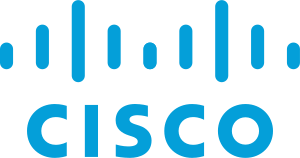Cisco CCNA (2020 version)
eLearning course with 24X7 access
CMIT Learning
Summary
Add to basket or enquire
Overview
This course is designed to prepare learners for the latest CCNA exam. Cisco CCNA certification prepares learners for today’s associate-level job roles in IT technologies. This latest CCNA certification includes security and automation and programmability. The certification covers a broad range of fundamentals for IT careers. Newly created taking into account the latest technologies and job roles, the CCNA training course and certification covers a range of topics, including:
- Network fundamentals
- Network access
- IP connectivity
- IP services
- Security fundamentals
- Automation and programmability
Certification
Cisco CCNA Collaboration Certification
Description
Topics covered in this Cisco CCNA eLearning course
- Components and basic characteristics of a computer network
- The model of host-to-host communication
- The features and functions of the Cisco Internetwork Operating System software
- LANs and the role of switches within LANs
- Ethernet as the network access layer of TCP/IP and the operation of switches
- Installing a switch and performing the initial configuration
- TCP/IP Internet layer, IPv4, its addressing scheme, and subnetting
- TCP/IP Transport layer and Application layer
- Functions of routing
- Implementing basic configuration on a Cisco router
- host-to-host communications across switches and routers
- Resolving common switched network issues and common problems associated with IPv4 addressing
- IPv6 main features and addresses, and configuring and verifying basic IPv6 connectivity
- The operation, benefits, and limitations of static routing
- Implementing, and verifying Virtual Local Area Networks (VLANs) and trunks
- The application and configuration of inter-VLAN routing
- The basics of dynamic routing protocols and describe components and terms of Open Shortest Path First (OSPF)
- Spanning Tree Protocol (STP) and Rapid Spanning Tree Protocol (RSTP)
- Configuring link aggregation using EtherChannel
- Purpose of Layer 3 redundancy protocols
- Basic WAN and VPN concepts
- The operation of Access Control Lists (ACLs) and their applications in the network
- Configuring Internet access using Dynamic Host Configuration Protocol (DHCP) clients and configuring Network Address Translation (NAT) on Cisco routers
- Basic Quality of Service (QoS) concepts
- Concepts of wireless networks, which types of wireless networks can be built, and how to use Wireless LAN Controllers (WLCs)
- Network and device architectures and an introduction to virtualization
- Introduction to the concept of network programmability and Software-Defined Networking (SDN) and smart network management solutions such as Cisco DNA Center™, Software-Defined Access (SD-Access), and Software-Defined Wide Area Network (SD-WAN)
- Configuring basic IOS monitoring tools
- The management of Cisco devices
- The current security threat landscape and threat defence technologies
- Implementing a basic security configuration of the device management plane and basic steps to harden network devices
Assessment
- You may optionally take exams to receive certification. Exam fees are not included in the course price
Who is this course for?
- This course is designed for anyone who needs CCNA certification. The course also provides foundational knowledge for all support technicians involved in the basic installation, operation, and verification of Cisco networks.
- Entry-level network engineers.
- Network administrators.
- Network support technicians.
- Help desk technicians.
Requirements
None. It is however recommended that students have basic computer literacy, PC operating system navigation skills, Internet usage skills and basic IP address knowledge.
For technical requirements required to access CMIT eLearning
Questions and answers
Currently there are no Q&As for this course. Be the first to ask a question.
Reviews
Currently there are no reviews for this course. Be the first to leave a review.
Legal information
This course is advertised on reed.co.uk by the Course Provider, whose terms and conditions apply. Purchases are made directly from the Course Provider, and as such, content and materials are supplied by the Course Provider directly. Reed is acting as agent and not reseller in relation to this course. Reed's only responsibility is to facilitate your payment for the course. It is your responsibility to review and agree to the Course Provider's terms and conditions and satisfy yourself as to the suitability of the course you intend to purchase. Reed will not have any responsibility for the content of the course and/or associated materials.


